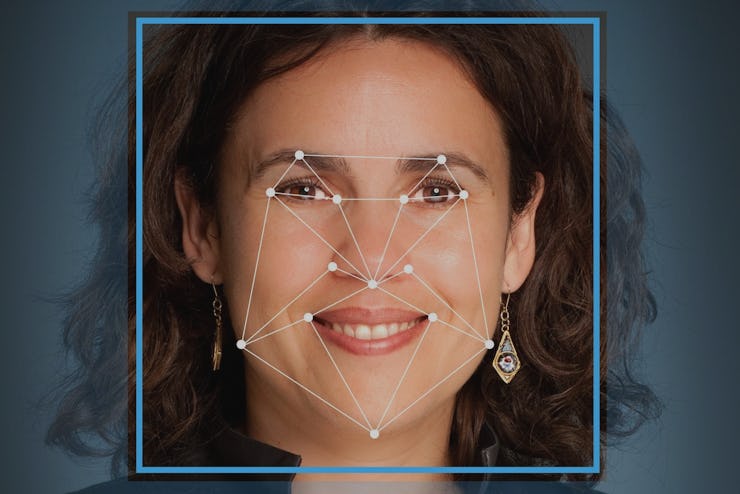Russian Face Recognition App FindFace Is Just as Creepy as It Sounds
Smile for your panopticon!

A new Russian facial recognition app called FindFace has amassed 500,000 users and over 3 million searches in the past month and has already secured a contract with local police to help identify suspects and witnesses. It’s not a new creepy idea, but the app’s unique effectiveness has meant all the predictable problems with such a program are already arising. People on the Moscow subway have had their photos taken and identities matched using the app, and online skeezballs have been outing adult entertainment actresses without their consent.
The app is based on a powerful algorithm that scans submitted photos against the database of Russian social media site Vkontakte and its over 350 million users. The 3 million searches not only nail down identities with about 70 percent accuracy, but the app also returns 10 doppelgängers on every search. The technology actually beat Google at “Megaface,” a facial recognition competition hosted by researchers at the University of Oregon last year.
“Three million searches in a database of nearly 1 billion photographs: that’s hundreds of trillions of comparisons, and all on four normal servers. With this algorithm, you can search through a billion photographs in less than a second from a normal computer,” 29-year-old Alexander Kabakov told The Guardian.
Since we all knew this day was coming, what makes the advent of FindFace frightening is that it is in the hands of precisely the people it shouldn’t be.
Here’s how the app works: “If you see someone you like, you can photograph them, find their identity, and then send them a friend request,” Kabakov explained to the British newspaper. But that’s not all! Once that person nixes your friend request, the app’s 10 “similar-looking” options presents an entirely new path toward rejection.
“It also looks for similar people. So you could just upload a photo of a movie star you like, or your ex, and then find 10 girls who look similar to her and send them messages,” Kabakov added.
And if the social networking element were not enough to disturb you, the founders insist that the app is just a publicity stunt of sorts, because the real money is in working with law enforcement and retail. The duo has already helped regional police departments locate suspects or witnesses and recently signed a contract with Moscow city government to inculcate the technology into the network of 150,000 security cameras.
As Kabakov notes, of course, some good can come from this kind of collaboration: “It’s nuts: there were cases that had seen no movement for years, and now they are being solved.” But what if, somehow, an authoritarian government that kills political enemies and journalists in the street managed to get hold of this technology? “If the FSB [Russian national police] were to get in touch, of course we’d listen to any offers they had.”
The possibility of retail stores gaining access to this kind of technology raises some less extreme, though no less stark, privacy concerns. A department store could identify you ogling a new suit or dress in a store window and then shoot you targeted advertisements. It may very well be our world soon enough, but Kabakov insists that we shouldn’t be worried about technology’s encroachment, because he studied philosophy in graduate school.
In today’s world we are surrounded by gadgets. Our phones, televisions, fridges, everything around us is sending real-time information about us. Already we have full data on people’s movements, their interests and so on. A person should understand that in the modern world he is under the spotlight of technology. You just have to live with that.
The team behind FindFace have not publicly expressed any plans to enter the American market, and if they did want to come overseas, there would be a few laws that might stand in their way, but not a lot. The team is certainly hoping that U.S. venture capital money may at least help fuel their rise in Russia. No matter what, at least we have these Japanese anti-facial recognition visors to keep our identities safe.
Let the privacy wars commence!